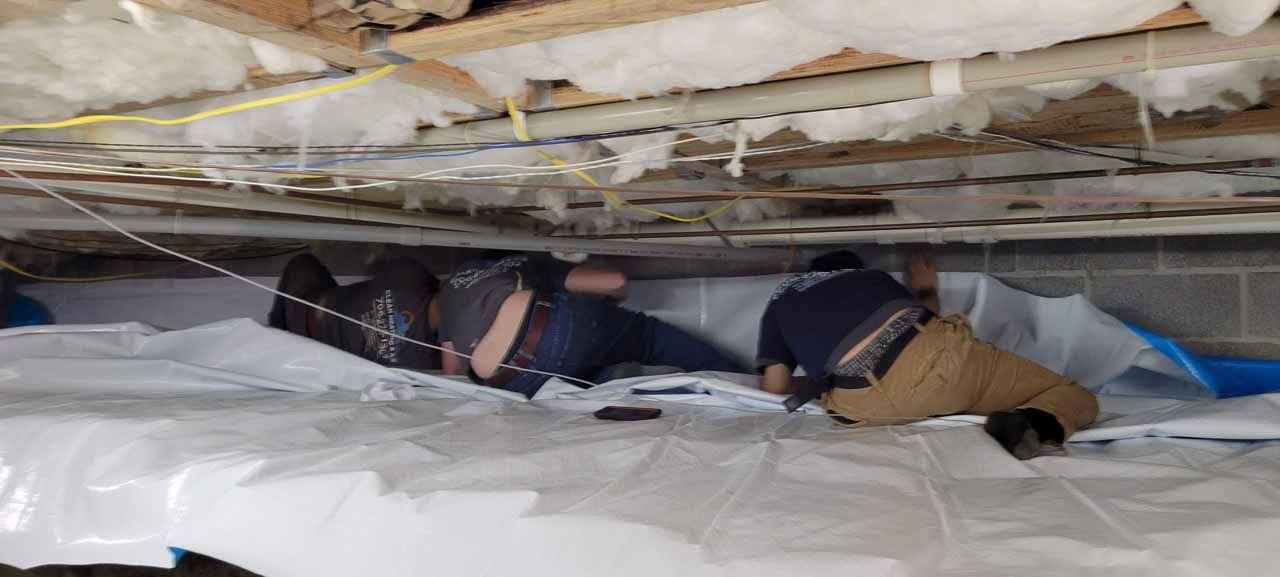
Vapor Barriers
A Good Vapor Barrier Is The Foundation Of Effective Crawl Space Protection!
The number one culprit for crawl space moisture from is the dirt floor. When you look at dirt, you can see there is a certain level of water content in it. When you don’t have anything protecting that crawl space from the floor, is that the natural water in the dirt is going to evaporate into the air of the crawl space. A crawl space vapor barrier stops this from happening. It acts as a rain jacket for your crawl space. In most Southeastern states like Georgia and Tennessee, it is code to have a 6-mil vapor barrier completely covering the floor of the crawl space. Clean Crawlspace recommends installing a 8-mil to 14-mil 100% woven reinforced vapor barrier, to create and extremely durable and long-lasting solution!

Crawl Space Vapor Barrier Requirements
Most state building codes in the Southeast require that the crawl space has a vapor barrier. In Georgia and Tennessee, the minimum thickness is 6 mils. This standard, although not the most durable option available, is a good budget option for any crawl space, especially if the home is going to be listed for sale. These two states also require that the vapor barrier is run up to the walls, completely covering any open dirt areas of the crawl space floor. County building codes sometimes add on to the existing state code by requiring that all the vapor barrier seams be taped. This means that wherever the barrier overlaps, it must be sealed, usually by a commercial-grade 4-inch waterproof tape. Make sure to check with your local professionals to see what is required for your home.
Vapor Barrier vs. Moisture Barrier
See Or Suspect Problems In Your Crawl Space Or Basement? We Want To Help!
Crawl Space Vapor Barrier Installers
Finding the right crawl space vapor barrier installation crew can be difficult. Always make sure the installation company is knowledgeable of what is needed for your crawl space by asking a few questions.
- Are they aware of what local code requires?
- Do the seams need to be taped and does the vapor barrier need to be run against all the perimeter walls?
- Are they properly insured, and is there a quality control process?
- What kind of warranty/guarantee do they provide?
- Do they truly specialize in crawl space work?
Going through the questions above should help every homeowner make the right decision for their crawl space need. Another thing to keep in mind is that most of the larger companies only offer full encapsulation, which is sometimes cost-prohibitive. Having a vapor barrier is always better than not having one!